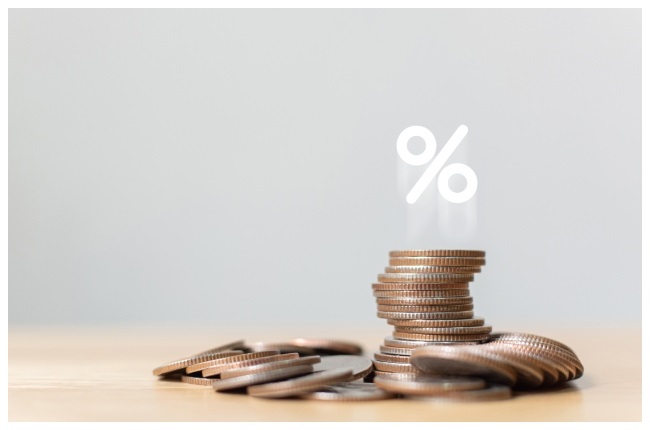
The cost of living has once again increased.
Although the interest rate hike was halted on Thursday, 20 July 2023, the effects of loadshedding continue to strangle pockets.
For the first time since November 2021 after 10 consecutive interest rate hikes, a scheduled hike was placed on hold as consumer inflation fell within the South African Reserve Bank (SARB) target range of 3% and 6%.
However, SARB governor Lesetja Kganyago said keeping the rate at 8.25% does not mean that the rates will not be increasing again soon.
“Is this the end of the hiking cycle? No, it is not. It depends on the data and risks, that is what it boils down to," Lesetja said at a media conference in Pretoria.
The inflation rate is projected to stabilise at 4.5% in 2025 and for as long as there is an "absence of sustained and consistent increases in energy supply, electricity prices continue to present clear inflation risks.”
Read More | Savings Month | Have you got R100 to spare for your financial future? It makes all the difference
He added that “load-shedding and logistics constraints may also have broader effects on the cost of doing business and the cost of living. Given uncertain fuel and food price inflation, considerable risk still attaches to the forecast for average salaries."
This reflects directly in Experian’s report on the Consumer Default Index (CDI) which demonstrates the country’s return to the former trend of a long-term deterioration propelled by the rapid increase in living expenses and intensified loadshedding.
The index tracks a marginal default rate by looking at the sum of first-time defaulted balances of common loan portfolios, those being home, vehicle, personal, credit and retail loans.
What this means is that more and more people from all affluent classes are struggling to meet their debt obligations for the first time in their record.
“A significant deterioration for the latest reporting period was already pre-empted in 2022 Q4 when we saw an earlier-than-usual deterioration in CDI, considering the typical annual cycle of the CDI. It would seem that the CDI has not only fully returned to the long-term deteriorating trend observed pre-COVID, but that the deterioration is happening at a faster pace,” says Jaco van Jaarsveldt, head of commercial strategy and innovation at Experian Africa.
Taking into account all loan portfolios, the CDI increased relatively by 22% as compared to this time last year with first time default balances accounting to about R23.8 billion.
Home loans account for the highest increase with a relative CDI of 35%, amounting to R6 billion while vehicle loans recorded the lowest relative increase of 4% which equals to R4.9 billion.
Ironically, 48% of the population in the highest economic class are part of these records which means almost half of the highest earning population in the country missed their loan repayments for the first time.
“Although these consumers are typically of the highest affluence (and generally represent thelowest credit risk), their CDI has been under severe pressure – particularly since the pandemic,” the Experian report reads.
Speaking to this, Jaco says, “We also note that these consumers typically not only continued to qualify for new or more credit throughout the pandemic but have also become increasingly dependent on credit to fund their standard of living.”
This not only flags concern of sustainable living for the more vulnerable classes, but it also demonstrates how more people will be living hand-to-mouth soon.
Read More | Living beyond your means? Here are 5 signs that show you are and how to fix it
To escape this in light of forthcoming tough times, Hollard’s group head of private equity and mergers and acquisitions, Graeme Young says it is now time to reflect on budgeting habits and allocate savings for unforeseen circumstances.
With the country’s savings rate standing at 0.5%, the importance of having a financial safety net has grown.
“By having savings, people can avoid falling into debt or relying on high-interest credit options during times of financial strain. Furthermore, saving promotes long-term financial stability. It also allows individuals to accumulate funds for significant life events, such as purchasing a home, starting a business, or funding education. Through regular contributions, even in small amounts, individuals can harness the power of compounding and watch their savings grow over time.”
“While the impact of saving cannot be overstated, it may be challenging to do so under economically challenging circumstances. In such instances, consumers may need to adjust and find innovative strategies to enable them to save, in order to safeguard their financial well-being,” adds Graeme.
To enhance savings, there are several insurance products that people can buy into at an affordable cost.
“Health insurance, for example, is one of the most crucial products that consumers can purchase to safeguard themselves from health-related risks as medical expenses can impose a significant financial burden on individuals and families. Having a health insurance policy can enable people to better manage healthcare costs and safeguard savings from unexpected medical bills.”
Another recommendation that Graeme makes is having a life insurance that could come in handy when one a loved one passes on.
He also recommends having a disability, vehicle and homeowners’ or renters’ insurance which safeguards property and belongings against damage or loss.
“It’s important to also consider retirement savings options like retirement annuities or pension plans that offer tax advantages and long-term savings growth. These products can assist individuals in building a retirement nest egg and securing their financial future.”
So even when the going gets tough, you can save yourself from bearing the most extreme brunt of it all.



















